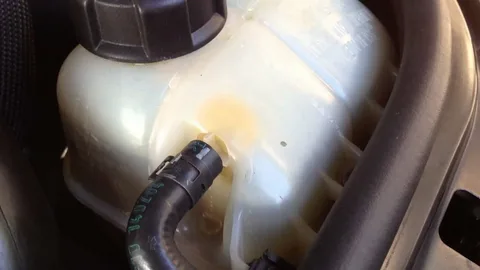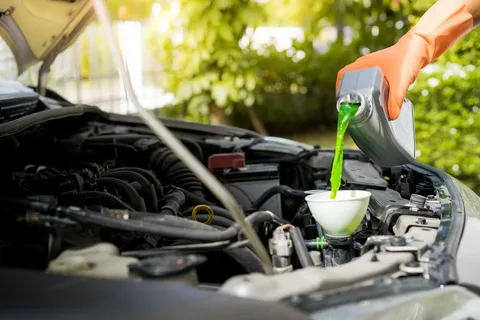Why Does Coolant Boil After the Car is Turned Off? It’s like, you just can’t win with cars. First they overheat when you’re driving, and now they overheat when you’re not driving. What’s next?
Why Does Coolant Boil After the Car is Turned Off?
Contents
Even though your engine is no longer running, hot coolant is still circulating through the radiator and engine block. This can cause the coolant to boil, resulting in a loss of coolant and potential engine damage.
What Are the Consequences of Coolant Boiling?
Boiling coolant can lead to a number of problems, the most serious of which is engine overheating. When coolant boils, it turns to steam, which takes up more space than the liquid form of coolant.

This can cause pressure to build up in the radiator and engine, leading to potential overheating and damage. Additionally, boiling coolant can lead to a loss of coolant itself, which can cause engine damage if not addressed quickly.
How Can You Prevent Coolant Boiling?
There are a few things you can do to prevent coolant boiling:
- Make sure your cooling system is operating at the correct pressure. Too much pressure can cause the coolant to boil.
- Check your radiator cap to make sure it is sealing properly. A faulty radiator cap can cause the coolant to boil.
- -Make sure your cooling system is filled with the correct type and amount of coolant. The wrong type of coolant or not enough coolant can cause the coolant to boil.
- -Have your cooling system serviced regularly. A well-maintained cooling system is less likely to experience problems that could cause the coolant to boil.
What Should You Do if Coolant Boils After the Car is Turned Off?
Why Does Coolant Boil After the Car is Turned Off? it is likely that there is a problem with the cooling system. The most common cause of this is a leak in the system, which can allow air to enter and cause the coolant to boil. Other possible causes include a faulty thermostat or water pump, or a clogged radiator. If you notice that the coolant boils after the car is turned off, be sure to take it to a mechanic to have it checked out as soon as possible.

How to Troubleshoot Coolant Boiling?
If your car’s coolant is boiling, there are a few things you can do to troubleshoot the issue. First, check the radiator cap to make sure it is tight and not leaking. If the cap is loose, tighten it and check the coolant level. Why Does Coolant Boil After the Car is Turned Off? add more until it reaches the full line. Next, check the hoses for any leaks or cracks. If you find a leak, replace the hose. Finally, check the water pump to make sure it is working properly.
if the pump is not working, replace it.
What Are the Most Common Causes of Coolant Boiling?
There are many causes of coolant boiling, but the most common are:
- A leak in the cooling system
- A build-up of sludge or scale in the cooling system
- A failure of the water pump
- A failure of the thermostat
- -A build-up of pressure in the cooling system
How to Fix Coolant Boiling?
Why Does Coolant Boil After the Car is Turned Off? it could be a sign of a serious issue. It could be caused by a faulty radiator cap, a blocked radiator, a cooling system leak, or low coolant levels. If you’re unsure of what to do, take your car to a mechanic for diagnosis and repair.
Is It Normal for Coolant to Boil After the Car is Turned Off?
Why Does Coolant Boil After the Car is Turned Off? This is because the coolant is still hot after the engine has been turned off. The coolant will continue to boil until it cools down completely.
FAQs( Frequently asked questions)
Why is Coolant Boiling After Car Turned Off?
How Do I Stop My Coolant From Boiling?
Is It Normal to Hear Coolant Bubbling?
Why is My Coolant Bubbling but Not Overheating?
What Are Signs of a Clogged Radiator?
- Warning 01: Faulty passenger area heater. …
- Warning 02: Coolant leaks. …
- Warning 03: Overheating engine. …
- Warning 04: Low coolant level. …
- Warning 05: Sludge or rust in the radiator.
